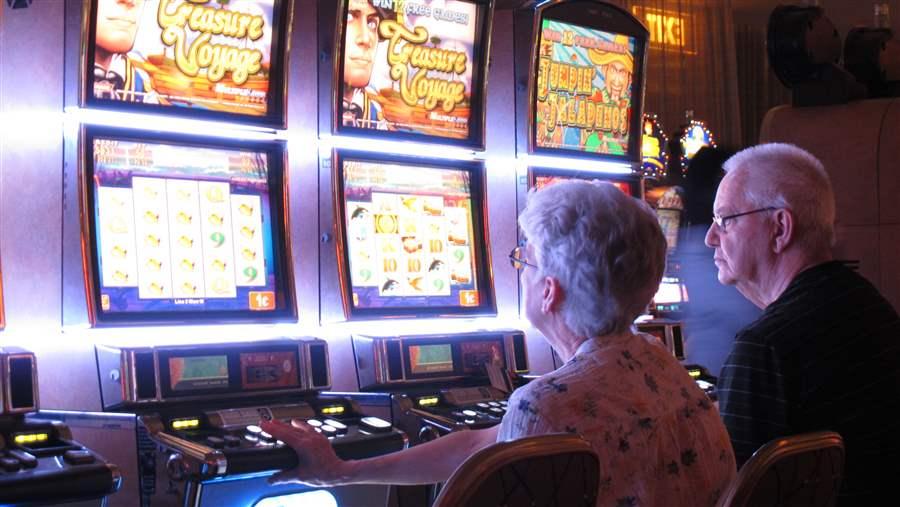AARP Warns Members of Gambling Dangers, While Continuing to Offer Free Online Games
OCTOBER 05, 2016 BY KEVIN HORRIDGE

Casinos are targeting too many seniors, a new article in the AARP Bulletin claims. (Image: Wayne Parry/Associated Press)
The AARP (American Association of Retired Persons) is warning its more than 37 million members that visiting casinos can lead to problem gambling addictions.
In its October Bulletin, the AARP says casino companies are actively marketing towards older patrons. Titled “The Casino Trap,” the non-profit organization claims the recent expansion of land-based casinos throughout the country has engulfed a substantial percentage of seniors living in the US.
And the gambling operators are going after retirees, according to the AARP.
“Older adults are an especially desirable demographic for the gaming industry because they fill the floors during off-peak hours, and casinos market to them aggressively, offering discounts on breakfast and lunch, free drinks and guarantees,” freelance journalist John Rosengren writes for AARP.
“The gambling boom, and the aggressive tactics the industry uses to lure older patrons, has alarmed addiction experts,” Rosengren explains. “Even casino patrons with no history of problem gambling can develop addictive behavior as they age.”
Contradictory Claims
It’s no secret that seniors enjoy the entertainment that gambling provides, and of course, the potential reward. US residents aged 50 and older accounted for nearly half of the 101 millions visitors who entered a casino in 2014.
AARP attempting to educate its members on problem gambling risks seems to be a worthy effort. But if the organization was truly concerned with gaming addiction, it might want to reconsider its website, on which an entire section is dedicated to free online games. Many mimic similar slot formats that patrons find in land-based casinos.
While some offerings may keep the mind sharp, such as solitaire and crossword puzzles, the AARP site also offers slots, video poker, and arcade games.
And ironically, the senior membership organziation [sic] even has a game titled “Addiction Solitaire,” complete with the description: “Feed your addiction.”
The games are free to access and play, but members do receive points for their play. Those points are tallied and tracked on leaderboards, a notion that provides the stimulation of winning.
Breeding Bettors
While Rosengren’s article highlights several examples of the potential for the elderly to lose their retirement savings gambling, AARP’s online games might be spawning future casino patrons themselves.
In fact, some medications typically used by seniors can actually exacerbate the gambling urge. Rosengren cites a Duke University study that found certain Parkinson’s medications have led to an increased rate of problem gambling among patients.
“Some casinos stock their bathrooms with adult diapers and disposal receptacles for diabetics’ needles,” Rosengren went on to say. “They provide wheelchairs, walkers and more handicapped parking spots . . . One Nevada casino operated an on-site pharmacy (since closed) where accumulated play credits could cover the standard $25 copay on medications.”
According to National Council on Problem Gambling Executive Director Keith Whyte, “It is the action of gambling that is addictive, not the prizes [per se].”
AARP, of course, has its own agenda as the nation’s largest lobbying group for the over-50 set. And this latest warning is far from the first time the group has put itself in the position of “benevolent parent” to the elderly when it comes to the potential for gambling harm.



No comments:
Post a Comment